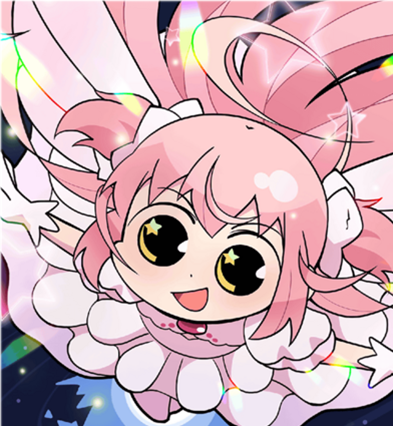Try using it and discuss the topic!
Topic site: https://zh.purasbar.com/post.php?t=31149
目前共有12篇帖子。
 |
This post gives some vocabularies abot the topic of "Spring Festival Around Us"
Try using it and discuss the topic! Topic site: https://zh.purasbar.com/post.php?t=31149 |
 |
Spring Festival Vocabulary List (Beginner Level)
1. Food & Drinks Dumplings: Traditional food symbolizing wealth and family unity. Rice Cake (Nian Gao): Sticky rice cake representing "prosperity and growth." Fish: Symbolizes surplus and abundance. Sweet Rice Balls (Tangyuan): Round desserts for family togetherness. Spring Rolls: Crispy rolls symbolizing wealth and new beginnings. 2. Traditions & Activities Red Envelope: A red packet containing money for blessings. Firecrackers: Used to create loud noises and ward off bad luck. Spring Couplets: Red banners with auspicious phrases hung on doors. Family Reunion Dinner: The festive meal shared on New Year』s Eve. Lion Dance: A lively performance to attract good fortune. Temple Fair: A traditional market with food, games, and performances. 3. Decorations & Symbols Lantern: Red lanterns hung to symbolize joy and brightness. Fu Character: The Chinese character "福" (blessing) displayed upside-down. Red Clothes: Worn to bring luck and happiness. Paper Cuttings: Decorative art with patterns like flowers or animals. 4. Key Verbs Celebrate: To engage in festive activities. Decorate: To adorn homes with festive items. Greet: To exchange wishes like "Happy New Year!" Prepare: To organize in advance for the festival. Exchange: To give and receive gifts or blessings. 5. Common Phrases "Happy Spring Festival!": A standard greeting. "Good luck and prosperity!": A classic blessing. "Best wishes for the New Year!": A heartfelt message. 6. Additional Basic Terms Lucky Money: Money given to children in red envelopes. New Year Visits: Visiting relatives and friends during the festival. Reunion: Gathering with family members. Festival Atmosphere: The joyful mood during celebrations. |
 |
Spring Festival Vocabulary List (Intermediate Level)
1. Cultural Significance Auspicious (adj.): Symbolizing good luck or fortune (e.g., "auspicious phrases on Spring Couplets"). Taboo (n.): Actions or words avoided during the festival (e.g., sweeping floors on New Year』s Day). Ancestor Worship (n.): Honoring ancestors through rituals or offerings. Symbolism (n.): Hidden meanings behind customs (e.g., fish symbolizes surplus). Folklore (n.): Traditional stories, like the legend of the monster "Nian." 2. Social & Modern Changes Generational Gap (n.): Differences in traditions between elders and youth. Digital Red Envelope (n.): Virtual money gifts via apps like WeChat. Firework Ban (n.): Restrictions on fireworks for environmental reasons. Commercialization (n.): Influence of marketing and consumerism on traditions. Nostalgia (n.): Longing for past ways of celebrating. 3. Activities & Practices Temple Fair (n.): Traditional market with snacks, games, and performances. Lantern Festival (n.): The 15th day of the lunar year, marking the festival』s end. Kowtow (v.): Bowing deeply to elders as a sign of respect. Reunion Travel Rush (n.): Mass migration of people returning home for the festival. Spring Festival Gala (n.): Annual TV show watched by millions on New Year』s Eve. 4. Cultural Comparisons Cultural Hybridity (n.): Blending traditions (e.g., Western decorations with Chinese customs). Global Recognition (n.): Worldwide awareness of Spring Festival. Individualism vs. Collectivism (phr.): Contrast between personal freedom and family focus. 5. Advanced Verbs Preserve (v.): To protect traditions from disappearing. Adapt (v.): To modify customs for modern life. Debate (v.): To discuss opposing views (e.g., fireworks vs. pollution). Revive (v.): To bring back fading traditions. Simplify (v.): To make celebrations less elaborate. 6. Discussion Phrases "How do you balance tradition and modernity?" "Is commercialization eroding cultural values?" "What traditions deserve preservation?" 啊啊是谁都对:Usage Tips
Compare and Contrast: Use terms like generational gap or cultural hybridity to analyze changes. Express Opinions: Pair verbs like debate or preserve with issues. Cultural Context: Explain symbolism in deeper terms.
[查看详情]
|
 |
Key Words & Phrases 1. Cultural Preservation & Identity Intangible Cultural Heritage (n.): Traditions recognized by UNESCO (e.g., Spring Festival rituals). Cultural Authenticity (n.): Maintaining the "true essence" of traditions amid modernization. Ethnocentrism (n.): Judging other cultures by one』s own cultural standards. Cultural Hegemony (n.): Dominance of one culture over others in globalization. Identity Negotiation (n.): Balancing traditional and modern cultural identities. 2. Globalization & Modern Challenges Transnationalism (n.): Cultural practices crossing national borders (e.g., overseas Spring Festival parades). Cultural Commodification (n.): Turning traditions into marketable products (e.g., themed merchandise). Ecological Footprint (n.): Environmental impact of festival practices (e.g., fireworks pollution). Digital Detox (n.): Reducing technology use to reclaim traditional interactions. Hyperconsumerism (n.): Excessive focus on shopping during festivals. 3. Sociopolitical Dynamics Governmental Intervention (n.): Policies regulating traditions (e.g., firework bans). Cultural Soft Power (n.): Using festivals to enhance national influence abroad. Urban-Rural Dichotomy (n.): Contrasting celebrations in cities vs. villages. Policy Implementation (n.): Challenges of enforcing cultural preservation laws. 4. Philosophical & Ethical Debates Cultural Relativism (n.): Understanding traditions within their own cultural context. Moral Imperative (n.): Ethical duty to preserve endangered customs. Cosmopolitanism (n.): Embracing global cultures while valuing local traditions. Ethical Consumerism (n.): Choosing eco-friendly or socially responsible festival practices. 5. Academic & Theoretical Terms Diaspora Communities (n.): Ethnic groups maintaining traditions abroad. Syncretism (n.): Blending cultural elements (e.g., Christmas-inspired Spring Festival decor). Postmodern Identity (n.): Fragmented cultural identities in a globalized world. Cultural Capital (n.): Traditions as a form of social value and power. 6. Critical Discourse Phrases "To what extent does globalization homogenize cultural diversity?" "Can cultural commodification coexist with authenticity?" "Is governmental intervention a safeguard or a threat to traditions?" 啊啊是谁都对:Usage Tips
Analyze Complex Issues: Use terms like cultural hegemony or transnationalism to critique power dynamics. Ethical Debates: Frame discussions with moral imperative or ethical consumerism. Policy Critique: Discuss regulations using governmental intervention or policy implementation.
[查看详情]
|
 |
Thank you for making this vocabulary list. It is very useful (for both attending the topic this week and learning English)

啊啊是谁都对:Thanks for your comment.
How do you think of the amount of the vocabulary list? 圆环之理:回復 @啊啊是誰都對:I think the amount is ok
And your explanation is very clear, only few words and some phrases I must look up in the dictionary once again in order to understand better Thank you for your hard work 啊啊是谁都对:回復 @圓環之理:These explainations are given by DeepSeek.
I would appreciate it if you could tell me the words you looked up once again. 圆环之理:回復 @啊啊是誰都對:Words only Nostalgia
Phrases only Ethnocentrism, Transnationalism, Ethical Consumerism, Postmodern Identity But I think it is mostly because my English is poor And after looking up in the dictionary I think their explanations are already clear enough
[查看详情]
|
Combine words to describe traditions: "We hang red lanterns and exchange red envelopes."
Ask simple questions: "Do you eat fish during the reunion dinner?"
Use emojis to add flair: 🧧 (red envelope), 🏮 (lantern), 🥢 (chopsticks).